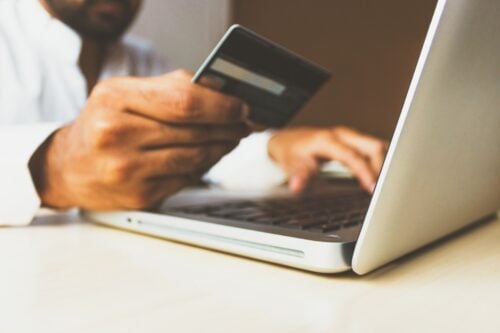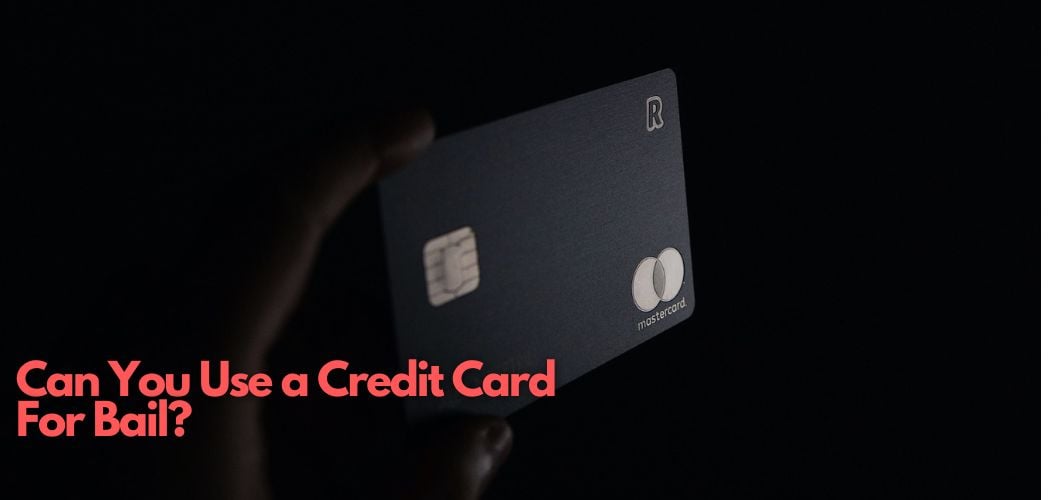When it comes to paying bail, many people wonder if they can use a credit card as a form of payment.
So, can you use a credit card to pay for bail?
Well, paying bail with a credit card can provide a convenient and flexible option for those who find themselves in need of posting bail.
As credit card usage continues to rise worldwide, it’s essential to understand the advantages and disadvantages associated with this method of payment.
According to a report by the Federal Reserve, credit card use in the United States alone has increased to over 500 million credit cards in circulation, highlighting its widespread popularity and convenience.

Now we explore the pros and cons of paying bail with a credit card and provide insights to help you make an informed decision.
Paying Bail with a Credit Card: Pros and Cons
Pros of Paying Bail with a Credit Card
Convenience
One of the main advantages of paying bail with a credit card is the convenience it offers. With a credit card, you can make the payment online, eliminating the need to physically go to a bail bondsman’s office or the courthouse.
This can save you time and energy, especially if you’re unable to take time off work or have other responsibilities to attend to.
Flexible Payment Options
Using a credit card to pay for bail allows you to spread out the payment over time, making it more manageable.
Unlike cash payments, which usually require the full amount upfront, you can pay for bail with a credit card and pay off the balance over several months, depending on the credit card company’s policy.
This can be especially useful if you’re facing financial constraints and need more time to gather the funds.
Secure and Tracked Payment
Credit card payments for bail are usually secure and tracked, meaning that a clear record of the payment is generated, which can be useful in case of any disputes or discrepancies in the future.
This can give you peace of mind, knowing that your payment has been accurately recorded and processed.
Cons of Paying Bail with a Credit Card
Potential Fees and Interest
One of the main disadvantages of paying bail with a credit card is the potential for additional fees and interest.
Some jurisdictions or bail bonds companies may charge processing fees for using a credit card as a payment method.
Additionally, if you don’t pay off the charged amount promptly, interest may accrue on the amount charged to the card, leading to additional expenses.
Jurisdictional Limitations
Another disadvantage of using a credit card for bail is that some jurisdictions may not accept credit card payments for bail.
This may be due to different payment policies and security concerns. In such cases, you may have to explore alternative payment options, such as cash payments or surety bonds.
Credit Limit and Impacts on Credit Score
Using a credit card for bail payments can also affect your credit score, especially if you max out your credit card limit or miss payments.
This can impact your ability to secure loans or credit in the future, so it’s important to consider the potential impact on your finances and credit history before deciding to use a credit card for bail payments.
Overall, paying bail with a credit card can be a convenient option, but it’s important to weigh the pros and cons and consider the specific jurisdictional policies and fees before making a decision.
By educating yourself and making an informed choice, you can navigate the bail payment process with confidence.
Can You Use a Credit Card to Pay for Bail? (Is It Possible?)
Yes, paying bail with a credit card is possible in many jurisdictions. However, it’s essential to note that the policies and regulations surrounding credit card payments for bail can vary significantly by location.
So it’s important to verify if this payment option is accepted in your specific area. Some jurisdictions allow credit card payments, but others may only accept cash or require surety bonds.
It’s important to research the specific regulations of the jurisdiction in question before assuming credit card payment is an option.
Additionally, jurisdictions may have certain limitations on the amount that can be paid with a credit card.
How to Pay Bail with a Credit Card

If you find yourself in a jurisdiction that allows credit card payments for bail, here’s a step-by-step guide on how to make the payment:
Step 1: Contact the bail bondsman or the court
Before proceeding with the payment, it’s crucial to reach out to the relevant authorities to ensure that credit card payment is an accepted method. You can contact the bail bondsman handling the case or the court clerk to gather all the necessary information.
Step 2: Provide the necessary information
Once you’ve confirmed credit card payments are accepted, you will need to provide the required information. This typically includes the defendant’s name, case number, and the amount you wish to pay.
Make sure to have these details handy to expedite the payment process.
Step 3: Check if there are any additional processing fees associated
Some jurisdictions or bail bonds companies may charge processing fees for credit card payments. It’s important to inquire about any additional fees in advance so you’re aware of the total cost.
Step 4: Visit the official website or any authorised portal
Many jurisdictions offer online payment portals where you can conveniently make your credit card payment. These portals are secure and provide a user-friendly interface to guide you through the payment process.
Step 5: Enter your credit card details and ensure that all information is accurate
Once you access the payment portal, you’ll be prompted to enter your credit card details. Take care to enter the correct information, including the card number, expiration date, CVV code, and any other required details.
Double-check all the information to avoid any errors that may hinder the transaction.
Step 6: Review the payment summary to complete the transaction
After entering your credit card details, you’ll typically be presented with a payment summary. Take a moment to review the summary and ensure that all details, including the amount you’re paying, are accurate.
If everything is in order, proceed to complete the transaction. This may involve clicking on the “Pay Now” or “Submit” button, depending on the specific payment portal.
Step 7: Keep a copy of the receipt or confirmation
Once the payment is successful, it’s important to keep a copy of the receipt or confirmation for your records. This serves as proof of payment and can be useful in case of any discrepancies or future references.
It’s worth noting that the payment process may vary slightly depending on the jurisdiction and the specific payment portal used.
Always follow the instructions provided by the bail bondsman or the court to ensure a smooth and successful credit card payment.
Remember, paying bail with a credit card can be a convenient option, but it’s important to stay informed about any limitations, fees, or specific instructions associated with the jurisdiction in which you are making the payment.
By following the necessary steps and taking note of the details, you can confidently make a credit card payment for bail.
Frequently Asked Questions
How much of the bail amount can I pay with my credit card?
Answer: The amount you can pay with your credit card varies depending on the jurisdiction. Some jurisdictions may allow the full amount to be paid, while others may have limitations.
Will I be charged extra fees for using my credit card for bail payments?
Answer: It’s important to check with the bail bondsman or the court for any additional processing fees associated with using a credit card for bail payments.
How long does it take for a credit card transaction to be processed for bail payments?
Answer: The processing time for credit card payments for bail may vary. It’s best to inquire about the expected processing time when making the payment.
Conclusion
In conclusion, paying bail with a credit card can be a convenient option, allowing you to make the payment online and spread it out over time.
However, it’s important to consider the jurisdiction’s policies and any associated fees before deciding to use a credit card.
Remember to pay off the charged amount promptly to avoid accruing interest.
By understanding the pros and cons, as well as following the necessary steps, you can make an informed decision about paying bail with a credit card.


 Tags:
Tags:










